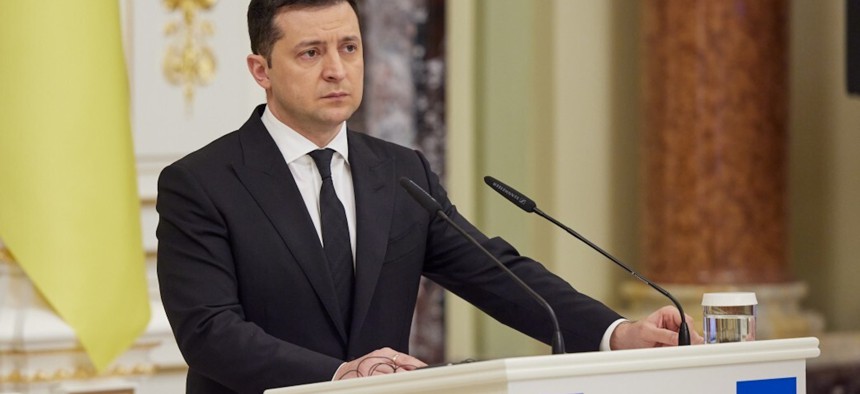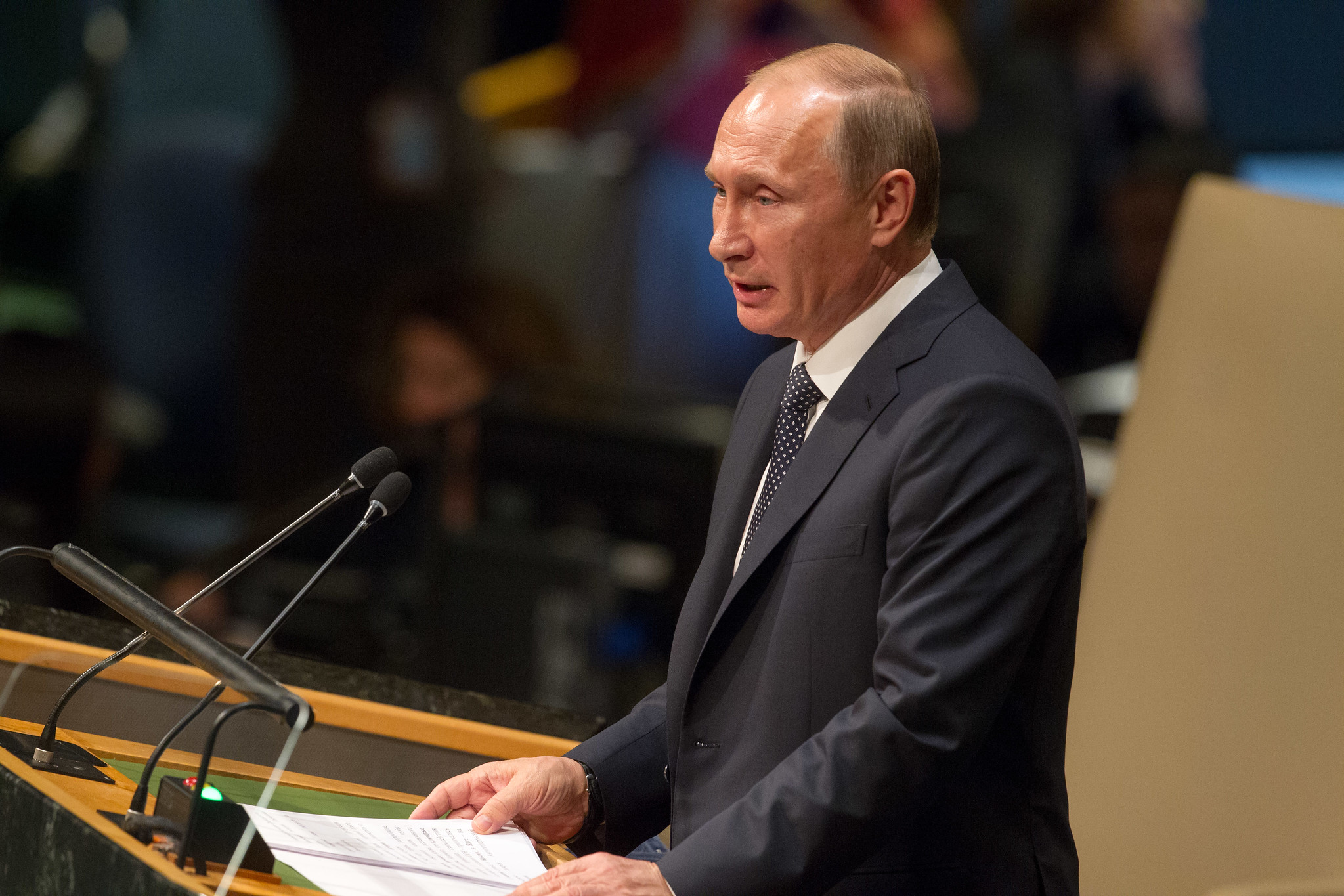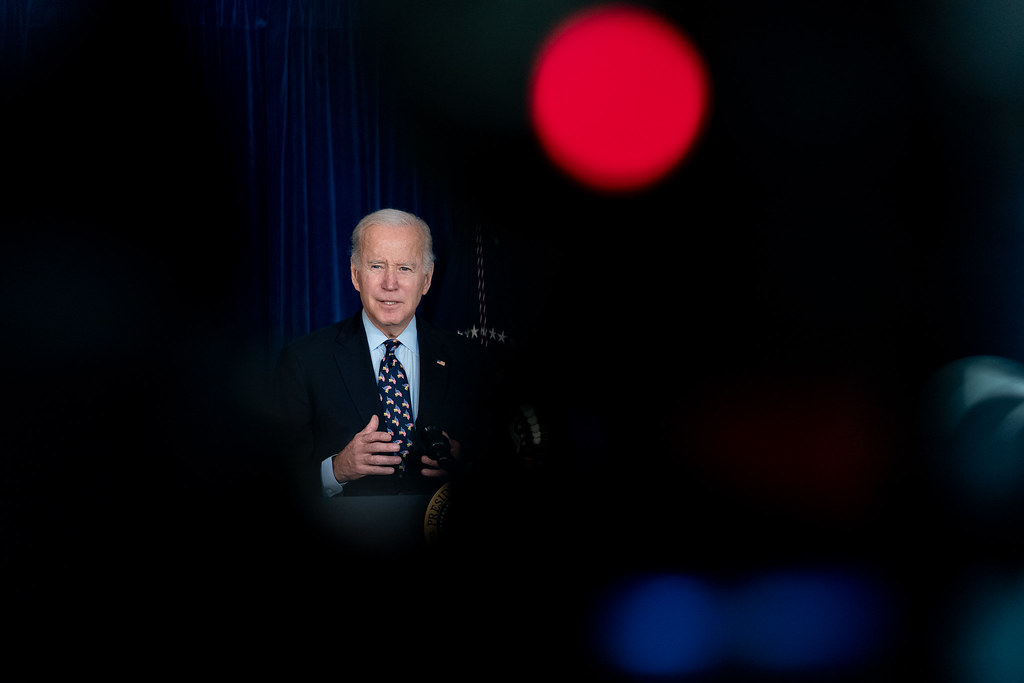
Volodymyr Zelenskyy speaks in Kyiv in 2021. Anadolu Agency /Getty Images
Putin, Zelenskyy and Biden All Have Unique Leadership Styles
The current conflict in Ukraine has three key leaders, each of whom uses a different approach to the crisis.
Crises have the capacity to reveal who leaders really are, and how differently they operate.
Our research over the past 20 years has identified three primary types of leadership across a wide range of situations and circumstances.
The current conflict in Ukraine has three key leaders, each of whom uses a different approach to the crisis.
Zelenskyy, the charismatic hero
In Ukrainian President Volodymyr Zelenskyy, the world has found its charismatic hero, albeit a reluctant one.
Charismatic leaders offer their followers hope and visions of a better future. They influence people by making emotional appeals about what that future might look like.
Zelenskyy personified the charismatic style of leadership in his 2019 campaign. He branded himself as an anti-establishment candidate, seeking to provide new leadership and change for his nation.
During the present crisis, Zelenskyy’s widespread emotional appeal is on full display. He has inspired his own people but also has become a global icon nearly overnight.
Putin, the ideologue
Russian President Vladimir Putin embraces his role as an ideological leader. These leaders typically seek a return to a bygone era, offering to turn back the clock to a time when followers were more satisfied with their lives. They often use negative emotions to stress what could happen if such a shift does not occur.

Putin most directly illustrates the ideological leadership style in his overarching desire to return Russia to the era of Stalin and Lenin. Putin once called the end of the Soviet Union “the greatest geopolitical tragedy of the 20th century.”
In recent years he has literally begun to rebuild this union by annexing portions of Georgia and the Crimean Peninsula in Ukraine. Putin also exemplifies the ideological style of leadership by attempting to physically embody the values he believes represent Russia, including projections of strength, history and imperialism.
Biden, the pragmatist
U.S. President Joe Biden is the pragmatist. Pragmatic leaders seek a path forward by solving problems, attempting to achieve influence through logic and rationality rather than emotional appeals.

His attempts at influence have largely focused on problem-solving, using data to defend his decisions. In recent speeches, which are by design less emotional than speeches by Zelenskyy or Putin, Biden has described his plan to confront Putin’s Ukraine invasion through economic sanctions and international coalition-building.
Pragmatic appeals lack big emotional swings. Yet even in the world’s divided – and subdivided – political landscape, a pragmatic approach offers a pathway to unity.
Three leaders collide
Their three differing leadership approaches provide a glimpse of how they will respond to whatever happens next.
Pragmatic leaders are the most flexible and adaptable, shifting their approach as needed to solve the problem. Biden’s current trajectory suggests that as a pragmatic leader, he could include novel and far-reaching economic sanctions. And though direct combat involving U.S. troops is currently off the table, with pragmatic leaders, no tool is ever completely excluded.
Charismatic leaders like Zelenskyy can energize followers in ways other leaders cannot. This has already resulted in massive donations and other types of support from around the world – and a Ukrainian army that is fighting hard against a formidable enemy. But physical and emotional energy are limited, and eventually charismatic appeals may become less effective.
Finally, and perhaps most notably, ideological leaders such as Putin are often unwavering and unwilling to compromise. They can encourage their followers to make sacrifices in ways that charismatics and pragmatics cannot – but only if the followers share the same values as the leader and view the leader as representative of those values.
Some Russians are already showing signs of rejecting Putin’s aggressive vision of a resurgent Soviet Union. Beyond everyday Russians’ frustrated reactions to the world’s economic sanctions, some Russian soldiers are signaling that they feel unnecessarily pulled into conflict with neighbors. And some reports indicate a Russian attempt to assassinate Zelenskyy failed in part because Russian government officials secretly warned Ukraine.
The math on this conflict is clear: Russia has a much larger military. If Ukraine survives the conflict, it may well be due to the disconnect between Putin’s ideological leadership and his people’s tangible practical needs.
![]()
This article is republished from The Conversation under a Creative Commons license. Read the original article.






